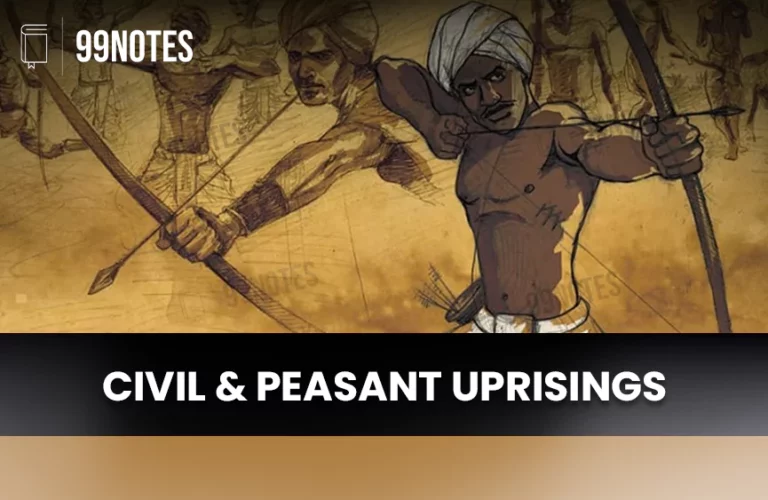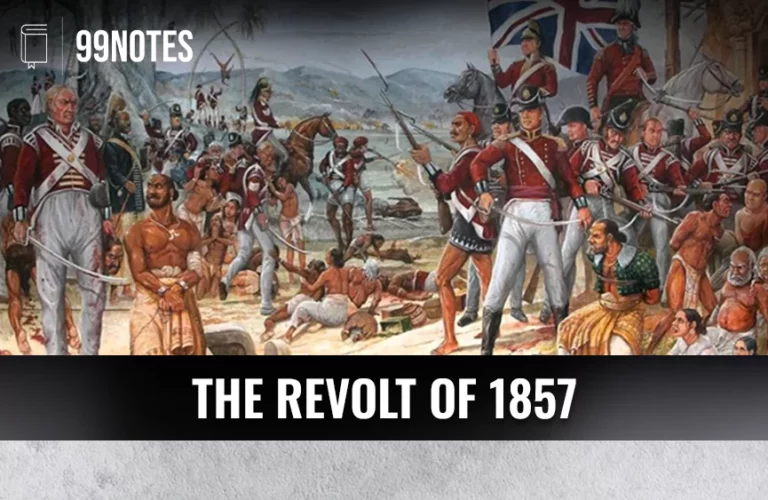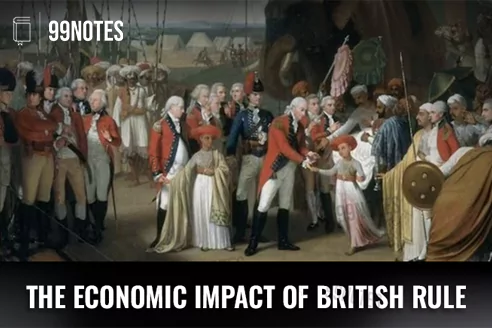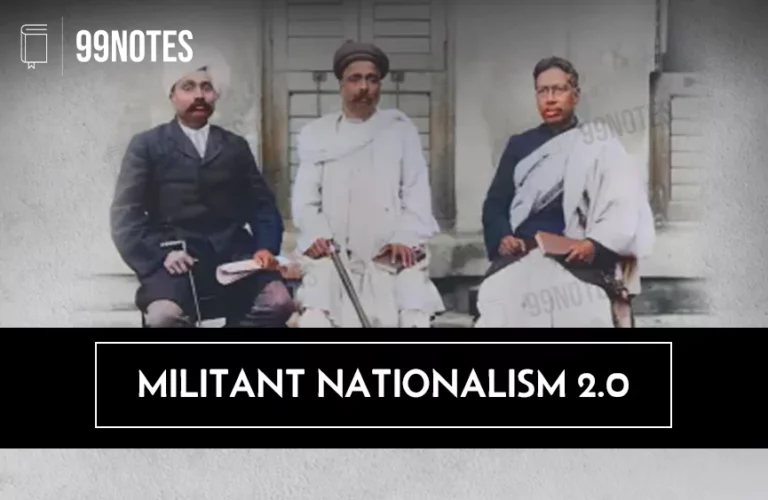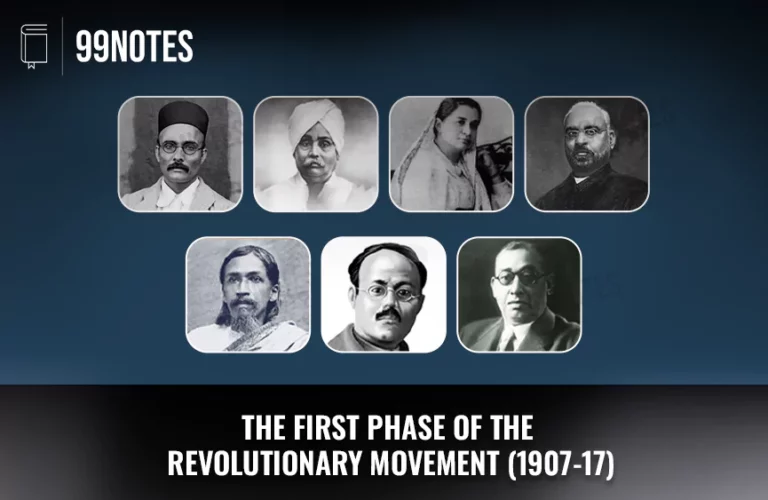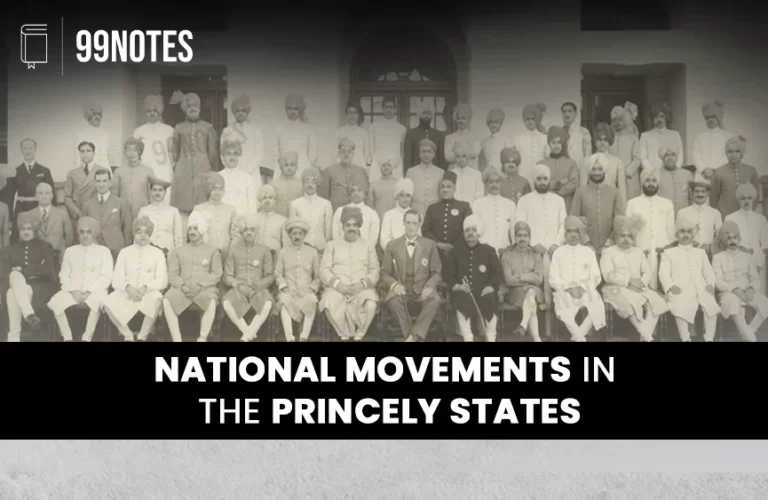Debate on future strategy after Civil Disobedience Movement
Debate on future strategy after civil Disobedience movement In the Aftermath of the withdrawal of the Civil Disobedience Movement, a debate emerged among the nationalists regarding the future course of action in the near term. Different debate was initiated as follows: While Gandhi emphasized constructive work, which he thought would consolidate the masses for the…

![Early Political Activities: 1858-1905 [Complete Notes For Upsc] | Updated November 19, 2024 Early Political Activities: 1858-1905 [Complete Notes For Upsc]](https://99notes.in/wp-content/uploads/2024/02/early-politics-featured-66698a6014484-768x500.webp)
